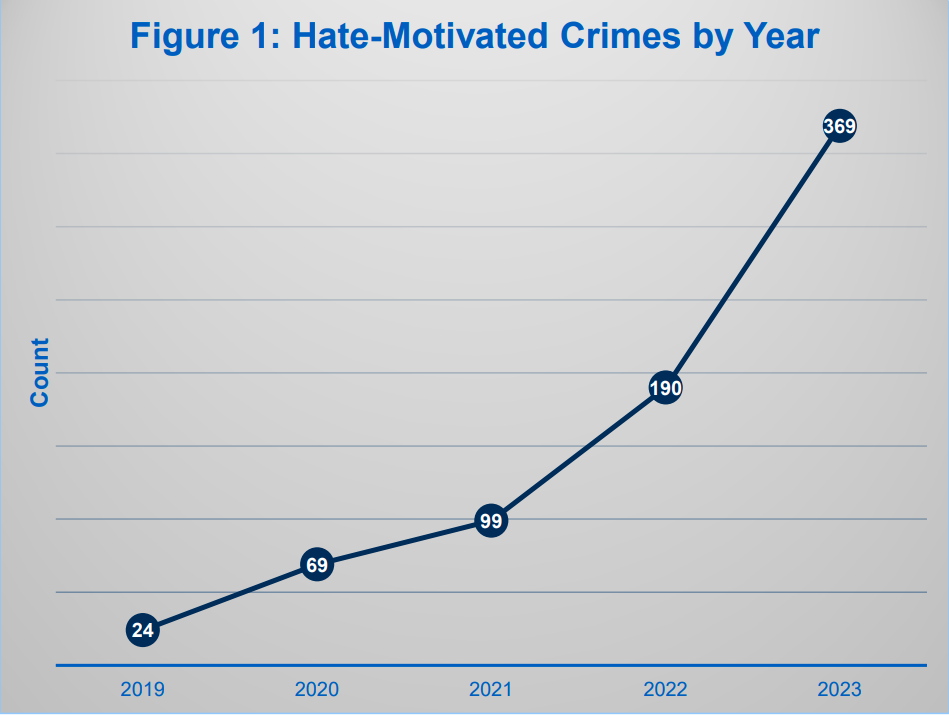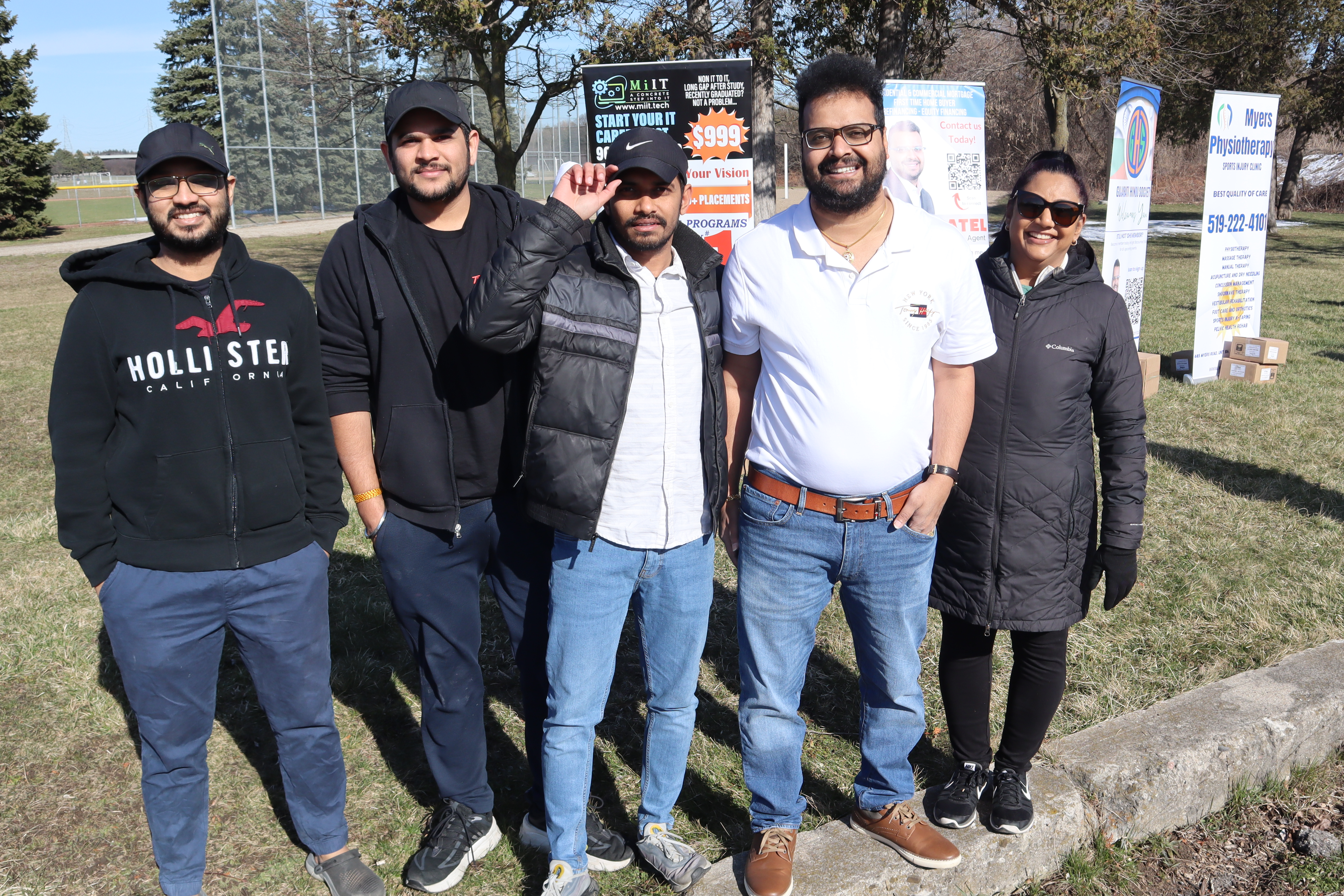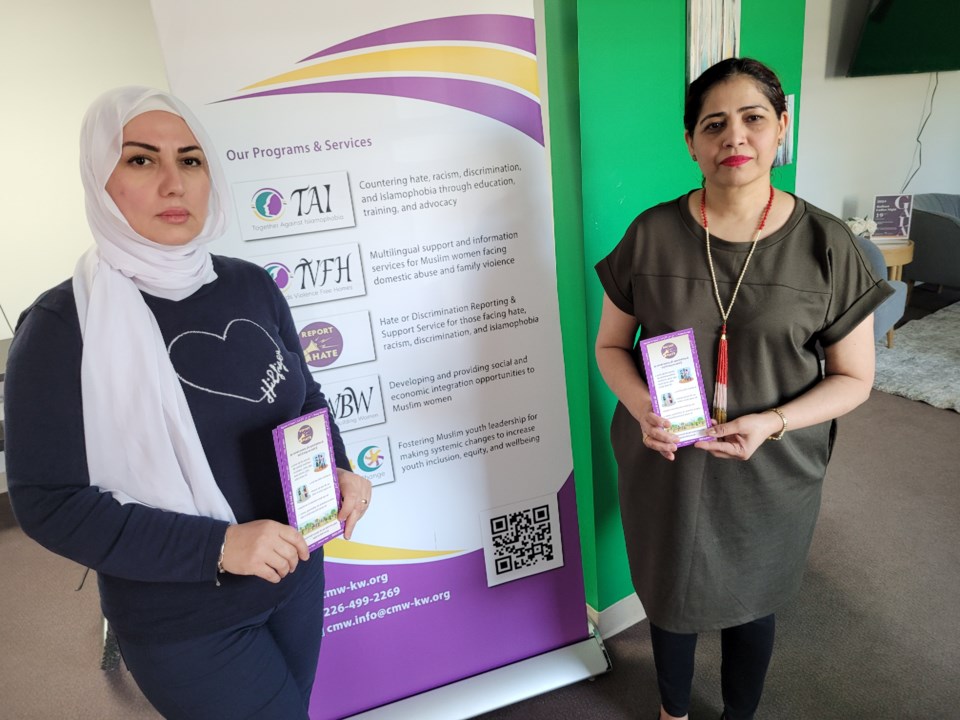A steep rise in the number of race-based hate crimes in Waterloo region is raising alarms with newcomer advocates, politicians and members of the Indian diaspora who say it's the result of an imbalance created by a rapid influx of international students.
A report released by Waterloo regional police last week shows that between 2020 and 2023, police logged 387 race-based hate crimes and about half of those occurred in 2023.
Most race-based hate crimes reported over the last four years targeted Black individuals, but there was a recent, noticeable spike in crimes directed at South Asians.
They account for about one in six of the 190 race-based hate crimes reported to police last year, up from about one in 10 reported in 2022.
Most of those crimes were non-violent and took the form of uttered threats or mischief like graffiti.
Race-based hate only escalated to assault in 12 per cent of incidents.
Police admit the numbers are only a fraction of a much larger problem since hate crimes are chronically under-reported.

The local numbers come in the wake of a March StatsCan report that ranked Kitchener, Waterloo and Cambridge among the top three census metropolitan areas in Canada for all motivations of police-reported hate crime in 2022.
That year the region had a rate of 22.7 hate crimes per 100,000 population, behind only Ottawa at 28.3 and Kingston with a rate of 23.1 per 100,000.
StatsCan says hate crimes targeting the country's South Asian population increased steadily since 2019, rising 143 per cent over the four year span.
Locally, police say they're working to reduce those numbers with intervention and education efforts.
After last week’s police board meeting, police chief Mark Crowell spoke briefly about the causes fuelling hate in Waterloo region.
But when asked to explain what could be behind it he pointed to the local support network, an increase in hate crime reporting, and geo-political factors like the Israel-Hamas war for the numbers spike.
He made no mention of the region's South Asian student population and said he doesn't believe anything in Waterloo region is affecting human nature differently than it is in other places.
Meanwhile, Conestoga College enrolled more than 30,000 foreign students in various programs across its eight campuses last year, an estimated 80 per cent of which are from India.
Since those numbers came to light, the college has been the target of rampant criticism as some students struggled to find housing and feed themselves, relying on food banks and free meals to supplement bank accounts decimated by inflation.
Anyone browsing comments on social media channels like Reddit would see human nature in Waterloo region is being affected by it.
During a virtual forum with Toronto Metropolitan University last week, Canada's immigration minister Marc Miller pointed to a 2019 tuition freeze at Ontario's post secondary institutions as the main source for the problem.
The situation has forced colleges and universities to seek out other sources of revenue, including international students who are charged tuition at up to four times the rate of domestic students.
"I don't necessarily fault them entirely for that, but I think it has to be done responsibly," he said.
Had the government not put a cap on international student permits, Miller said the country would have seen exponential growth over the next two years coupled with "very, very negative carry-on effects" like inflation and a rise in the number of asylum seekers.
He has tasked the provinces with "cleaning up the mess in their own kitchens."
Sarah Shafiq, director of programming and community services with the Coalition of Muslim Women of Kitchener-Waterloo feels the “anti alien sentiment” has grown in tandem with the huge rise in Waterloo region's foreign student population, most notably when it comes to housing.
“They’re blaming these students for coming in and taking shelter,” she says.
In some people’s minds “it’s taking away options from others.”
The Coalition has been at the forefront of local efforts to stop Islamophobia and all forms of hatred since 2012, and three years ago developed an online hate reporting tool to capture data and help the region understand the scope of the problem.
Uzma Bhutto, director of development and training with the Coalition, says the international student factor has created an imbalance that’s also reflected in the number of hate incidents reported through the organization’s website, reportinghate.ca.
Students are unlikely reporting hate incidents, so the target in many of these incidents is the local diaspora.
“Obviously there is a problem,” Shafiq says. "Already we're in a crisis situation."
The focus now is finding solutions and trying to understand what all levels of government could have done better.
Outreach is already happening through the college and community to offer support to students since they are “obviously suffering as well,” she says.
The team at CMW-KW is trying to raise awareness about the work they do and encouraging newcomers and others to report hate incidents whenever they experience it.
In the meantime, Shafiq believes community leaders should be stepping in to clarify any misunderstandings, promote engagement and learn from what's happened so the response is more proactive and less reactive.

Ankit Patel agrees with Shafiq that the situation has been made worse by a challenging local economy and lack of affordable housing.
Contacted last week as he was preparing to celebrate the city's first outdoor Holi festival, the president of the Gujarati Hindu Society believes anyone behind the rise in racialized hatred sees foreign students accessing food banks, lining up for jobs, crowding transit, and filling rooming houses, and thinks they’re to blame for their own struggles.
But it's not true, he says. The students aren’t to blame. The Indian diaspora isn’t to blame.
“The hate is there because of all these scenarios coming together.”
Patel says nearly everyone he encounters in Waterloo region is friendly and welcoming, but he’s not surprised by the numbers.
It’s unfortunate that anyone who immigrated to Canada years ago, or was born to parents of Indian descent is facing racial backlash because some post secondary institutions and governments acted irresponsibly.
“People just assume based on the colour” of your skin, he says, pointing to weak federal oversight and local institutional greed for stoking the fire of racialized hatred in Waterloo region.
Patel calls it “a huge concern” that “should be stopped.”
“The student numbers are crazy. I get it, the colleges are making money, but the real struggle is there.”
Patel thinks the recent cap on foreign students will help restore some balance, but until those measures take effect, he fears many Indo-Canadians who have called Canada home for decades, raised their kids here and paid taxes will continue to be exposed to hatred.
“People say ‘go back to your country.’ Well, what country? I was born here,” he says, laughing at the ignorance of anyone who would say such a thing.
The irony in the epithet commonly directed at South Asians is the fact that the Indian Constitution prohibits dual citizenship. Unlike European immigrants, he says, Canadian citizens of Indian descent only have one country to call home.
"Shocked" and disappointed by the latest hate crime numbers, regional councillor and police board member Doug Craig understands Patel’s frustration, but defends the region’s efforts to respond to the problem.
He says the blame lies squarely with the feds, the province, and public and private institutions for helping the region earn its shameful distinction as one of the most hateful communities in Canada.
Craig says it’s particularly disappointing at a time when municipal governments are working hard to enact policies and develop frameworks around equity, diversity and inclusion.
Conestoga College did not respond to a request for comment.
Kitchener-South Hespeler MP Valerie Bradford was also unavailable for comment.






